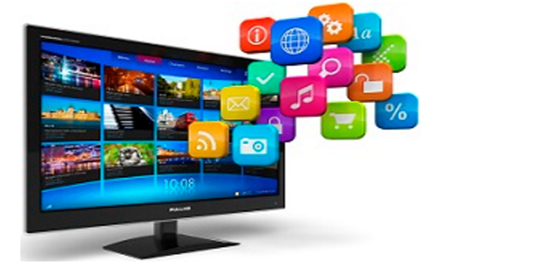
Will Internet be the death of Television?
According to the UN, "Television is a key player in the world of communications, given its growing influence on the decision-making process, having acted as the world's eyes during many conflicts and other threats to peace and security, as well as for having called the attention of society at large to important social and economic issues." Today, the 21st of November, we celebrate World Television Day and debate about its life expectancy.
Some individuals comment that, as the famous chorus of “Video killed the Radio Star” by The Buggles, that radio was doomed by video, that with the boom of televisions connected to the Internet, or Smart TVs, television as we have known it to date will also die.
I disagree, and don't think that traditional live television broadcast is going to die. To the contrary, my opinion is that it is very much alive and that the technological advances as regards the television “connection” assures it a long life.
What do I base this on? First of all, objective data. Data claims that television consumption in Spain is about 240 minutes per day, remains stable and has increased over the last 3 years. Furthermore, income generated by publicity from television has grown (despite the industry's crisis) over the last year.
On another hand, because television channels have known how to take advantage of these technological advances to expand television consumption, it has made available to TV viewers the contents already broadcast with other complementary or related ones, in turn acting as prescriptors for their online programming.
I cannot deny that the à la carte television, which I interpret to be “consuming what I want, when I want and on the device I want” is a reality, as occurs with the customization of contents. However, I would like to highlight that these contents consumed are mostly prescribed by traditional television (according to data from the "2nd Annual Study on Internet TV and Online Video" of IAB, about 73% of online television users watch programs that they were unable to view live. About 58% view contents emitted in addition to those broadcast over traditional television and about 47% rewatch their favorite programs, even if they have already seen these when they were emitted over the usual channel).
Beyond this, I must point out that the technological limitations of data networks as opposed to the already deployed broadcast network makes global, mass events (Olympics, Super Bowl, Soccer World Cup, etc.) use the traditional television as their natural means for emission.
Therefore, in my humble opinion, we will continue to celebrate this Day over many years to come.